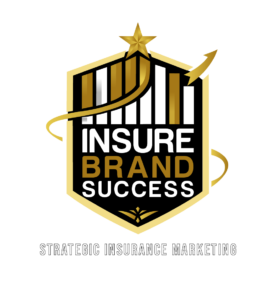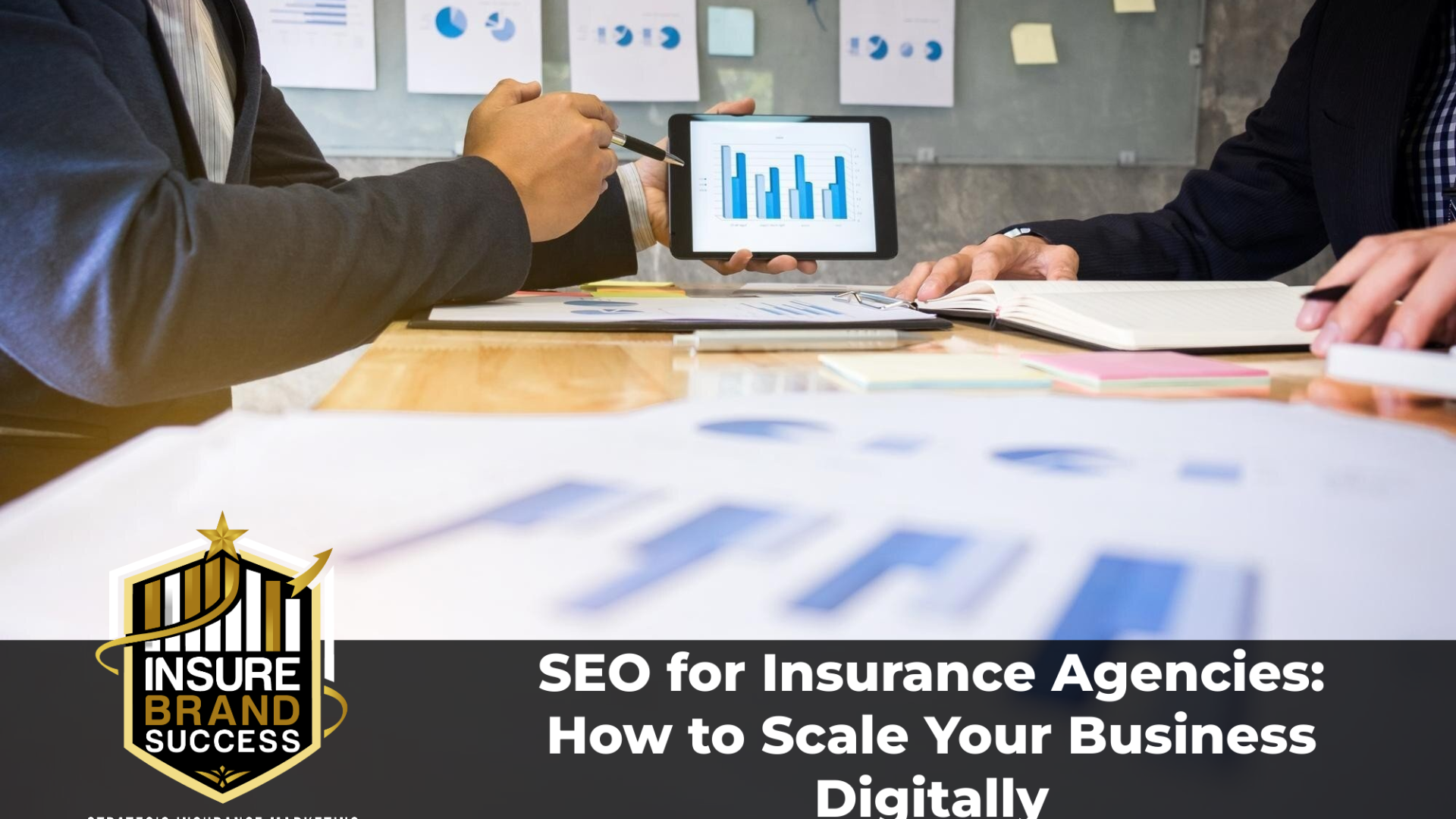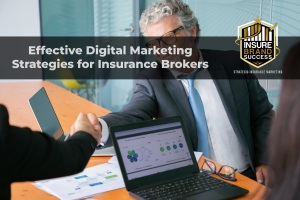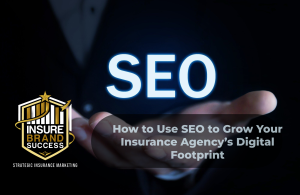In the competitive world of insurance, the key to staying ahead lies in your digital marketing strategy. With more and more consumers turning to the internet to research products, compare options, and make purchasing decisions, it’s crucial for insurance agencies to implement effective SEO (Search Engine Optimization) strategies. By ranking higher on search engines, you increase your chances of capturing the attention of potential clients, boosting client acquisition and retention.
Let’s explore how you can scale your insurance agency digitally by utilizing SEO to grow your business and stay competitive in the market.
1. Understanding the Importance of SEO for Insurance Agencies
SEO is all about improving your website’s visibility in search engine results. For insurance agencies, it means ensuring that your website appears when potential clients search for terms like “auto insurance near me” or “best home insurance in [city].” Without a strong SEO strategy, your agency’s website could remain buried on page two or three of search results, making it harder for clients to find you.
By optimizing your website for search engines, you can increase organic traffic, attract more leads, and ultimately close more sales. Additionally, SEO helps build trust and credibility for your brand, as consumers tend to trust the businesses that appear on the first page of search results. In short, SEO is a long-term investment that leads to consistent growth and visibility.
To ensure your website’s SEO is set up for success, it’s important to focus on local SEO, on-page optimization, and content marketing strategies that align with your target audience’s needs.
2. Keyword Research: Laying the Foundation for SEO Success
Effective SEO starts with understanding what your target audience is searching for. This means conducting thorough keyword research to uncover high-value search terms related to your insurance services. For example, someone looking for home insurance in your local area might search for “home insurance quotes in [city]” or “affordable homeowners insurance.” Identifying these search terms is crucial for optimizing your website’s content.
There are several tools available to help with keyword research, such as Google Keyword Planner, SEMrush, and Ahrefs. Once you’ve identified a list of relevant keywords, incorporate them into your website content, blog posts, and landing pages to improve your rankings. Be sure to use keywords naturally—stuffing keywords into content can lead to penalties from search engines.
For a deeper dive into SEO for insurance brokers, check out our SEO for Insurance Brokers service, which can help you identify and implement the best keywords for your agency.

3. Local SEO: Connecting with Clients in Your Area
As an insurance agency, your clients are likely local or regional. This makes local SEO one of the most important aspects of your SEO strategy. Local SEO ensures that your business appears in search results when potential clients in your area are looking for insurance services.
Start by claiming and optimizing your Google My Business listing. This free tool allows you to provide important information about your agency, including your address, phone number, website, and business hours. It also lets you collect reviews, respond to customer questions, and provide updates about your services. A well-maintained Google My Business profile can improve your visibility in local search results and Google’s Local Pack (the map-based section at the top of search results).
Additionally, use location-based keywords throughout your website. For example, phrases like “insurance agency in [city]” or “best insurance brokers near [location]” can help you rank higher in local search results. Be sure to get listed on other local business directories like Yelp, Yellow Pages, and BBB to boost your local presence.
For more tips on local SEO, check out our SEO Solutions for Insurance page.
4. On-Page Optimization: Making Your Website SEO-Friendly
On-page SEO refers to optimizing the individual pages on your website to improve search rankings. There are several elements to focus on to ensure your website is fully optimized:
- Title Tags and Meta Descriptions: These are the first things search engine users see in the search results, so make sure they’re clear, compelling, and contain your target keywords.
- Header Tags (H1, H2, etc.): Use header tags to break up your content into easy-to-read sections. Make sure your main keyword appears in the H1 tag and in other relevant headings.
- URL Structure: Keep your URLs short, descriptive, and easy to understand. Including keywords in your URLs can also help boost rankings.
- Internal Linking: Linking to other relevant pages within your website (such as linking to a service page from a blog post) helps search engines crawl your website more effectively and keeps visitors on your site longer.
- Image Optimization: Use descriptive file names and alt text for all images on your website. This helps with accessibility and can also improve your rankings.
By paying attention to these on-page elements, you can enhance your website’s user experience and increase your chances of ranking higher in search results.
5. Content Marketing: Educating and Engaging Potential Clients
Content marketing is an essential component of any effective SEO strategy. By creating valuable, informative content, you can attract potential clients, engage with your audience, and establish yourself as an authority in the insurance industry.
Start by developing a blog on your website where you can regularly publish articles addressing common questions and concerns about insurance. For example, you could write about topics like “What to Consider When Choosing Car Insurance” or “How to Save Money on Home Insurance.” These types of posts not only help with SEO by targeting long-tail keywords but also provide your audience with useful information.
In addition to blog posts, consider creating other types of content such as eBooks, whitepapers, or case studies. Offering downloadable resources in exchange for contact information is a great way to generate leads.
By consistently creating high-quality, SEO-friendly content, you’ll be able to drive more traffic to your website and keep potential clients engaged. For help with creating a content strategy tailored to your agency, check out our Insurance Marketing Strategies service.
6. Building Backlinks: Strengthening Your Site’s Authority
One of the most effective ways to improve your SEO rankings is by building backlinks—links from other websites to your own. Backlinks act as “votes of confidence” from other online sources, signaling to search engines that your website is trustworthy and authoritative.
To start building backlinks, consider guest posting on industry blogs, partnering with local businesses to exchange links, or submitting your site to online directories. Be cautious when building backlinks—focus on quality over quantity. Links from reputable, relevant websites will have a much greater impact than links from low-quality or spammy sources.
7. The Role of Paid Search (AdWords) in SEO
While SEO focuses on organic search results, Google Ads (AdWords) can be a powerful complement to your SEO efforts. Running paid campaigns can help you gain immediate visibility in search results while your organic SEO strategy takes time to bear fruit.
Paid search ads allow you to target highly specific keywords related to your services, driving traffic to your website. This targeted approach helps you reach potential clients who are actively searching for the insurance services you offer. Additionally, paid ads can increase brand visibility and even generate leads in the short term.
Consider combining your paid ads strategy with your insurance SEO services to ensure a balanced, holistic approach to your digital marketing efforts. For more information on running successful Google Ads campaigns, explore our AdWords for Insurance Agencies service.
8. Tracking and Analyzing Your Results
SEO is not a set-it-and-forget-it strategy. To ensure your efforts are paying off, it’s essential to track and measure your results using tools like Google Analytics and Google Search Console. These tools provide valuable insights into your website traffic, keyword rankings, and user behavior, helping you refine your strategy over time.
Focus on key performance indicators (KPIs) such as organic traffic, bounce rate, conversion rate, and keyword rankings. Regularly monitor these metrics to identify opportunities for improvement and adjust your SEO strategy as needed.

FAQs
How long does it take to see results from SEO?
SEO is a long-term strategy that requires patience, dedication, and continuous effort. Typically, results from SEO efforts can take anywhere from 3 to 6 months to become noticeable. However, this doesn’t mean you won’t see improvements along the way. In the early stages, you may notice gradual improvements in rankings, traffic, and engagement, especially if you’re targeting niche keywords or local markets. It’s essential to remember that SEO is not a one-off task but an ongoing process. The more consistently you work on optimizing your website, creating high-quality content, and building backlinks, the better your chances are of seeing long-term results. Over time, these efforts will compound, leading to sustained traffic, higher rankings, and increased conversions. The key is to stay consistent, monitor results, and adjust your strategy as needed to ensure your SEO efforts continue to yield positive outcomes.
What is the difference between local SEO and regular SEO?
The primary difference between local SEO and regular SEO lies in the target audience. Local SEO is about optimizing your website to rank for location-based searches, making it easier for people in your area to find your business. For example, if you’re an insurance agency in New York City, you’d optimize for search terms like “auto insurance in NYC” or “home insurance near me.” This type of SEO involves tactics like creating a Google My Business profile, building local citations, and using location-specific keywords.
Regular SEO, on the other hand, focuses on ranking your website for broader, non-location-specific keywords. This strategy is used when targeting a larger, more general audience, regardless of where they are located. For instance, if you provide life insurance services across the U.S., you’d focus on ranking for terms like “best life insurance policies” or “affordable life insurance.” While both types of SEO aim to increase visibility, local SEO is especially important for businesses that rely on attracting customers from a specific geographical area.
Can social media improve my SEO?
Although social media doesn’t have a direct impact on SEO rankings, it can significantly improve your SEO efforts by driving traffic to your website and creating opportunities for engagement. When you share high-quality content on social media, such as blog posts, client success stories, or industry insights, it can attract visitors to your website. Increased traffic signals to search engines that your website is valuable and relevant, which can indirectly boost your search rankings over time.
Furthermore, active engagement on social platforms helps build brand awareness and brand authority, which can translate into more backlinks, mentions, and interactions. These indirect signals can further enhance your SEO. Social media platforms also allow you to create a community, which can increase customer loyalty, retention, and even advocacy. In short, while social media may not directly affect your SEO rankings, it’s a powerful tool for driving traffic, building credibility, and fostering long-term relationships with clients.
Is it necessary to hire an SEO expert for my insurance agency?
While it’s certainly possible to implement SEO strategies on your own, hiring an SEO expert can save you a significant amount of time and effort, ensuring that your strategies are as effective as possible. SEO involves various complex components such as keyword research, content optimization, on-page SEO, backlink building, and technical SEO. An experienced SEO professional brings expertise in all of these areas and can quickly identify opportunities and challenges that you may miss.
Additionally, an SEO expert will stay up-to-date with the latest trends, search engine algorithm changes, and best practices. This is especially important for the insurance industry, which is highly competitive. By working with an expert, you ensure that your SEO strategies are tailored to your specific business needs and that you’re adhering to best practices to avoid penalties. Ultimately, hiring an SEO professional allows you to focus on what you do best—running your agency—while they take care of improving your online visibility and driving traffic to your website.
What are some quick wins for SEO that insurance agencies can implement?
If you’re looking to jumpstart your SEO efforts, here are a few quick wins to implement:
- Optimize your Google My Business profile: This is especially important for local SEO. Ensure that your profile is complete with accurate contact information, hours of operation, and high-quality images. Encourage satisfied clients to leave reviews, which can help boost your local rankings.
- Use location-based keywords: For insurance agencies serving specific regions, incorporating location-specific keywords in your website content, blog posts, and meta descriptions can significantly help with local SEO.
- Focus on mobile optimization: With more people using smartphones to search for services, ensure that your website is mobile-friendly. Google uses mobile-first indexing, meaning it ranks mobile-optimized websites higher than non-optimized sites.
- Create content that answers customer questions: Focus on writing blog posts or FAQs that address common concerns and questions your potential clients might have. This type of content not only helps with SEO but also positions your agency as a helpful resource in your niche.
By implementing these quick wins, you can see immediate improvements in your website’s SEO and build a foundation for long-term success.
How does SEO impact client acquisition for insurance agencies?
SEO directly influences client acquisition by ensuring that your insurance agency ranks high in search results when potential clients are looking for your services. The higher you rank for relevant keywords, the more likely you are to attract organic traffic—visitors who find your site without you having to pay for ads. Since insurance decisions are often researched online, being visible in search results is essential for acquiring new clients. Additionally, local SEO ensures that your business shows up when people in your area search for services like yours. By capturing potential clients at the moment they are actively searching for insurance services, SEO helps you increase your chances of converting these visitors into long-term clients.
How do backlinks affect SEO for my insurance agency?
Backlinks are essential for building your website’s authority and improving SEO rankings. When other reputable websites link to your content, it signals to search engines that your site is trustworthy and valuable. For insurance agencies, building high-quality backlinks from reputable sources such as industry blogs, government sites, and local business directories can significantly improve your rankings. These backlinks not only help improve your website’s SEO but also drive referral traffic from these external sources. To build backlinks, focus on creating valuable content that others want to link to, and consider guest posting on other industry websites to gain additional links.
What role does content play in SEO for insurance agencies?
Content is one of the most crucial aspects of SEO. By creating relevant, high-quality content, you increase your chances of ranking higher for keywords related to insurance services. Content such as blog posts, whitepapers, case studies, and landing pages can help answer the questions your potential clients are asking, positioning your agency as an expert. SEO-optimized content also provides value to your audience, leading to more site traffic and higher conversion rates. The more valuable content you create, the more opportunities you have to rank for long-tail keywords and niche topics, improving your SEO performance.
Can local reviews impact my SEO?
Yes! Online reviews are an important ranking factor for local SEO. Positive reviews on platforms like Google My Business, Yelp, and Trustpilot help build your agency’s credibility and trustworthiness in the eyes of both search engines and potential clients. Additionally, customer reviews serve as fresh, user-generated content that can boost your visibility in search results. Encourage satisfied clients to leave reviews on various platforms, and respond promptly and professionally to any feedback, whether positive or negative. This proactive approach not only improves your SEO but also enhances customer loyalty and retention.
How can I track the success of my SEO efforts?
To track your SEO progress, you should regularly monitor key performance indicators (KPIs) such as organic traffic, keyword rankings, bounce rate, and conversion rates. Tools like Google Analytics, Google Search Console, and SEMrush can help you track these metrics and identify areas for improvement. Additionally, regularly reviewing your backlink profile, content performance, and user engagement can provide valuable insights into your SEO success. Tracking these metrics over time allows you to fine-tune your strategies and make data-driven decisions to continue improving your SEO.




